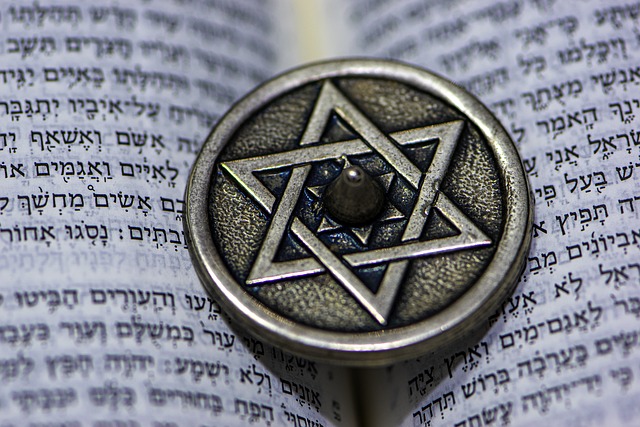Many individuals are looking to convert to Judaism but are still determining whether they may do so if they have tattoos. Yes, it is possible to switch to Judaism if you have tattoos. Nonetheless, there are several points to bear in mind.
Keep reading to find out.
Can You Covert to Judaism with Tattoos?

Basics
First, it is essential to remember that Judaism doesn’t approve of tattooing. Leviticus 19:28 states, “You must not create any wounds or tattoos on your bodies for the dead: I am the Lord.”
Therefore, if you have tattoos, you must be ready to explain why you possess them and how you intend to respect this commandment in the future.
Second, you need to know that certain rabbis may be unwilling to conduct a conversion service for a person with tattoos. It is due to the perception that tattoos are a sort of self-mutilation, which is against Jewish principles.
Nevertheless, some rabbis are ready to undertake conversions for individuals with tattoos, so long as they have a serious willingness to convert and are dedicated to living a Jewish lifestyle.
Consult a Rabbi
Whether you are considering switching to Judaism, the best course of action is to consult with a rabbi regarding your tattoos to determine whether they pose any issues. Remember that you may convert to Judaism and have a meaningful and fulfilled Jewish life despite having tattoos.
Tattoos were formerly banned in some western societies, although Jews hardly sported them. They are popular among individuals of all socioeconomic classes and are seen everywhere.
Numerous Jewish individuals acquire tattoos because they find them cool or because they appreciate how they appear.
As per Jews, the body is God’s creation, and it is thus inappropriate to ridicule God’s handiwork. It is comparable to carving another person’s name into newly poured cement.
Something has been vandalized without our authorization. In the past, worshippers of idols would tattoo themselves as a demonstration of their devotion to their gods.
According to Maimonides, the Torah’s prohibition against tattoos may have a rationale. If you already possess a tattoo that symbolizes your trip, it might be considered a badge of pride.
How to Convert to Judaism

A few components of converting to Judaism are carried out under the guidance of a beit din:
Acceptance of the Burden of the Commandments
When one converts to Judaism, one must declare a promise to live in line with the Torah’s rules described in Torah law. It is not appropriate for a convert to commit to a certain or even the majority of the commandments; they must agree to all of them.
In addition, this must be done due to a genuine desire to serve God as a Jew and not for any other reason, like the intention to marry a Jewish person.
Immersion Inside a Mikvah
A mikvah is a natural body of water, often rainwater. Upon conversion, you will immerse yourself in this spiritually purifying bath. Now is the time for you to embrace the Torah upon yourself.
Circumcision
If you are male, you must undergo circumcision. If you were circumcised as an infant, just a symbolic blood extraction would be performed at this time.
Hebrew Naming
Every newborn Jew receives a Hebrew name, yet a given name alone cannot identify an individual within the Jewish tradition.
When Jews sign legal papers or are summoned to the Torah, the names of their parents are added to their Hebrew names to identify them in Jewish religious space.
A convert accepts Sarah and Abraham as spiritual parents and is legally referred to as “bat Sarah Imenu” or “ben Avraham Avinu.”
How Long it Takes to Convert to Judaism

The duration of the study varies considerably. Generally, the range is between six months and one year, with some exceptions. Numerous non-Jews who want to marry a Jew do this in advance to be married at a Jewish wedding.
A marriage between a Jew by birth and a Jew by conversion is a Jewish marriage, not an interfaith union. If this is important, prepare to begin research long before the wedding.
Typically, a rabbi will request that the individual begin practicing Judaism by the movement’s concept during this study.
It is a good moment to investigate Judaism. Even if someone does not intend to maintain kosher (observe Jewish ritual regulations for food) in the future, it is beneficial to understand the laws for retaining kosher during this study.
Final Takeaway
Tattooing is expressly forbidden in the Torah. Those who breach this restriction are buried in a Jewish cemetery and participate in synagogue rituals. Even when no consequences are issued, the conduct should remain discouraged as a Torah infraction.
A Jew should always note that we are made in the image of God. This idea should be incorporated into all of their decisions.














